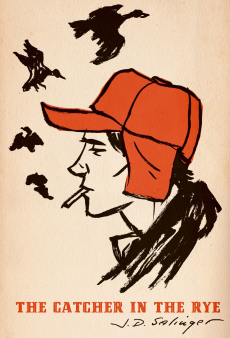
Email: reecejordan98@hotmail.co.uk
Total Article : 168
About Me:18-year-old sixth form student, studying English Literature, History and Government and Politics. My articles will broadly cover topics from the current affairs of politics to reviews of books and albums, as well as adding my own creative pieces, whether it be short fiction or general opinion.

The Catcher in the Rye. This is a book that has created a few raised eyebrows, gags of disgust, warmth of relation, and elation at a work of seminal genius. And that’s from just one reader.
The work is famous for its on-the-surface-odious protagonist, Holden Caulfield, a name which has morphed into an epithet denoting teenage confusion, or someone wishing to be high brow and more mature than they actually are; humorous pretentiousness. Holden is a sixteen-year-old boy and the narrator of the story who has just left his fourth school, Pencey, after showing lack of academic fervour. But, he insists, it is not because of any intellectual defect, oh no, Holden has the answers to everything, his cognitional path will be tampered with, he’ll have an abundance of money and finally be liberated from youth into adulthood.
And as Holden would have us believe with his impregnable pride that he has achieved this dream, that he understands this world of adult life. But the main crux and poignancy (as well as the humour, of course) of the novel lies in the fact that we are witnessing the liminal stage of youth into adulthood. What has since been penned as the ‘teenage years’, the years where we think we have suddenly eaten from the tree of knowledge, swallowed the red pill and now we understand everything. But they are also the years where we hang on to our childhood innocence and its shelter with a reluctant and instinctive tenacity, no matter how hard we try to deny it, as Holden does.
Holden wanders like a lost child among a city teeming with energy, drunk on its potent adulthood. Holden buys cigarettes and alcohol (his notion of the epitome of adulthood, means of intoxication and degradation, both wholly reductive substances) to uphold his veneer of maturity. He even visits a bar wherein he blatantly appears awkwardly incongruous and on the edge. In the most poignant scene, Holden pays for a prostitute (about to check off sex, already checked off drugs – surely all that’s needed now is rock and roll?), and chokes. He cannot bring himself to reduce a woman to merely a sex object; he can’t comprehend this old adult life where bodies aren’t seen as vessels for the soul, but a mere commodity. Instead he asks her for a chat. He just wants a chat. The whole novel he’s been looking for a chat. No doubt, then, that the characters he gravitates more towards are his English teacher, nuns and the elderly woman who invites him to sit down for tea.
Holden’s main assertion is that everyone is ‘phony’. This part of the novel, unfortunately or greatly, is the part where everyone appears to connect with Holden. What people fail to then recognise after this initial revelation, however, is that they themselves, just like anyone else, are portraying this outer image, painting this façade, just as Holden is. And so we are left with the title – Holden wishing to ‘catch the children’ before they ‘run off the cliff’ into adulthood. The novel stands a pinnacle to the testament of the struggles of adapting to the motion of time and overcoming the in-between awkward stages of life.
Image Credits: prezi.com

0 Comment:
Be the first one to comment on this article.